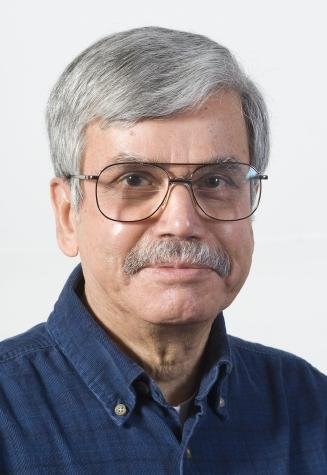 Day by day, our quest for truth seems to be getting far moreonerous than the search for a unicorn. The rarity of truth is not a phenomenon that transpires in the political realm alone, but manifests in every facet of life. And the struggle is not just a modern one, but has existed for millennia; it has very likely manifested ever since the existence of humankind on this earth.
Day by day, our quest for truth seems to be getting far moreonerous than the search for a unicorn. The rarity of truth is not a phenomenon that transpires in the political realm alone, but manifests in every facet of life. And the struggle is not just a modern one, but has existed for millennia; it has very likely manifested ever since the existence of humankind on this earth.
But there are many aspects of modern life, especially the advancement of technologies, that have exacerbated the problem so massively, that hope for a non-obfuscated worldview may be quickly fading into obscurity. Only staunch optimists, ardent idealists, and persons whose heads are buried in the proverbial sand, may think otherwise.
There are two kinds of untruths – natural ones and man-made ones.
Natural untruths are not created to cause harm (in some cases, they may have been created to save humans from harm). They occur because of the limitations of our knowledge, cognition abilities, or barriers to perception. I could perhaps offer the example of the ancient flat earth theory as falling into the category of natural untruth.
Hindu philosophy describes human limitations and the illusory world as the two barriers to the perception of truth. These barriers are variously described as a veil, a smoke-screen, or lack of illumination (physical as well as mental). Thus, what we humans perceive is not the absolute truth, but what can be considered as relative truth.
Even though Hinduism does not explicitly state that even scientific truth is also relative truth, what Hinduism states is that there is only one absolute truth – and that absolute truth is Brahman���ǰ���God. (One need only look into the history of scientific advancement to find examples of scientific truths getting changed, improved, modified over time, or even discarded). In science we consider something as truth if it is provable by logic, evidence, supporting facts, and observation; and most importantly, by its invariability under any circumstance or with the passage of time. And truth has to be completely independent of the observer and his biases.
Thus, eternal truth is that which is independent of logic, observer, observations, objects, subjects, conditions, perspective, senses, biases, and is invariable over time.
So, Hinduism considers only Brahman���ǰ���God as the absolute and eternal truth. The Hindu quest for truth is stated in the first line of verse 1.3.28 of the Hindu scripture Brihadaranyaka Upanishad. It states: “asato maa sadgamaya”, that is “lead us from untruth to (the absolute) truth”. Its expanded meaning is: “O Lord, keep me in not in the Unreality of the bondage of the illusory world, but lead me towards the Reality of the eternal truth which is Brahman”.
This prayer to God is meant to give us the courage, strength, wisdom, full use of our faculties, intelligence and good judgement, to constantly seek Truth, and discard untruth. We must not only discard untruth, but to actively oppose it whenever we see it. This prayer urges us to take action whenever we see untruth, thereby fiercely guarding our quest towards liberation or “moksha”.
It is in our endeavors towards this action that we find great challenges, seemingly unsurmountable obstacles, and life-altering threats. More than ever, we find that we must keep our faith, our hope, our dignity, and our humanity, in these times of assault on truth coming from all directions, in all aspects of our lives, making human life on this planet itself rather tenuous and precarious. Otherwise, humans themselves may fade away from the universe, and become part of the untruth that pervades it.
 Suresh Basrur practises the Hindu faith, participates in inter-faith activities in Victoria, and speaks to audiences about Hindu religion, philosophy and practices.
Suresh Basrur practises the Hindu faith, participates in inter-faith activities in Victoria, and speaks to audiences about Hindu religion, philosophy and practices.
You can read more articles on our interdaith blog, Spiritually Speaking,
* This article was published in the print edition of the Times 91ԭ�� on Saturday, November 16th 2019
Photo of sunrise by ���Dz���


